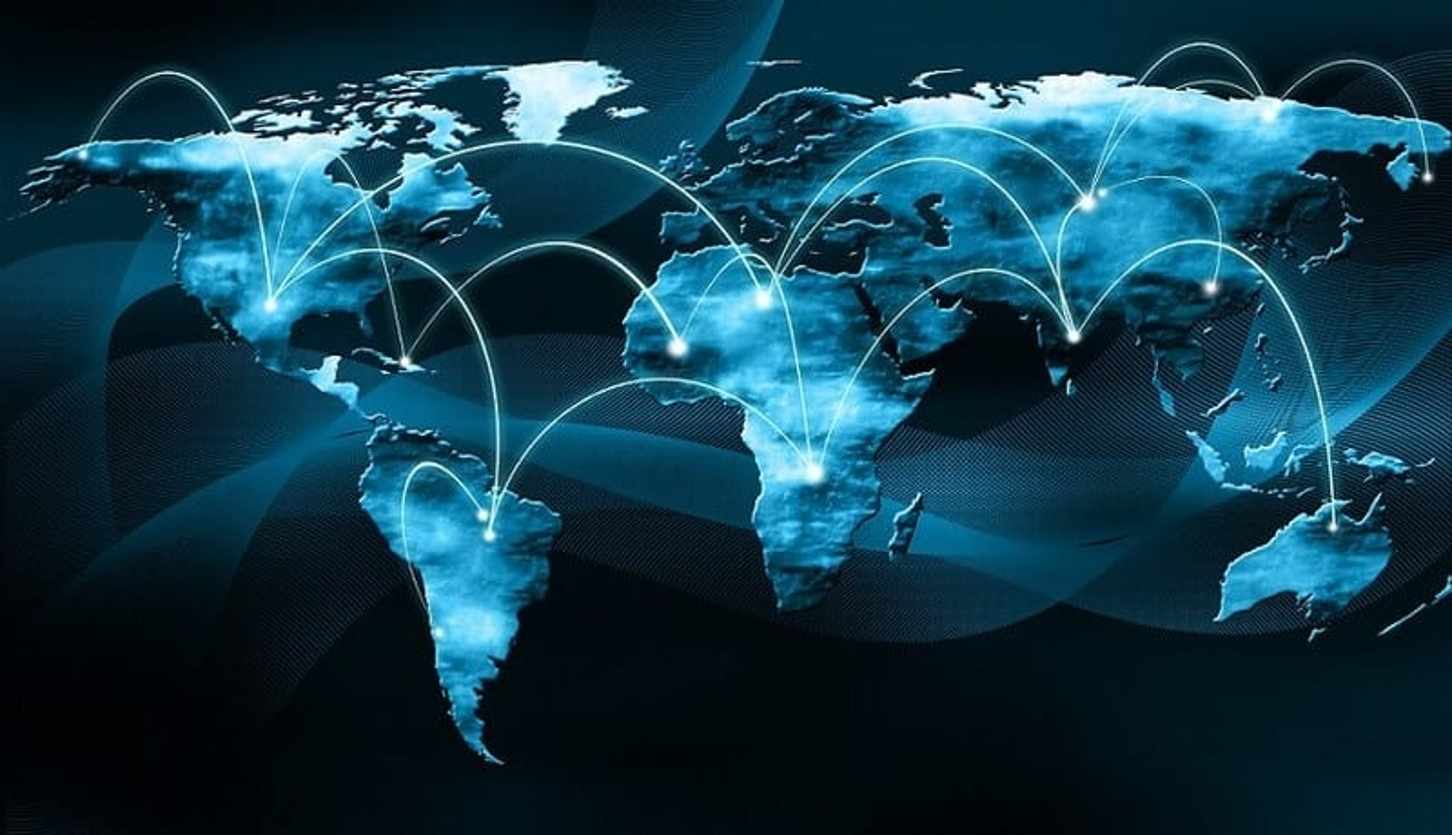As a concerned citizen and an advocate for enhanced cybersecurity, I write to bring attention to the pressing issue of escalating cyber attacks originating from Russia and to question whether it is time for Australia to consider implementing a proxy system to filter and monitor Russian internet traffic.
In recent years, we have witnessed a surge in cyber attacks, both in terms of frequency and sophistication, targeting various sectors within our country. It is no secret that Russian state-sponsored actors have been linked to a significant number of these attacks.
The consequences of these malicious activities are far-reaching, impacting critical infrastructure, government agencies, businesses, and individuals alike.
The threat landscape is evolving rapidly, and it is imperative that our cybersecurity strategies evolve in tandem. By exploring innovative measures to combat cyber attacks, we can better protect our digital infrastructure and ensure the safety of our citizens’ data.
Implementing a proxy system that specifically filters and monitors Russian internet traffic could be a potential solution worth considering.
A proxy system would involve rerouting Russian internet traffic through a designated channel that enables thorough monitoring and analysis of incoming data packets allowing our cybersecurity agencies to identify and block malicious traffic before it reaches its intended targets.
Moreover, it would provide valuable insights into the techniques and tactics employed by these threat actors, enabling us to bolster our defenses and stay one step ahead.
While implementing such a proxy system may present challenges, including the need for sophisticated monitoring infrastructure and potential impact on network speeds, the potential benefits are undeniable.
Proxing Russian internet traffic would not only act as a deterrent to cybercriminals but also serve as a means of gathering intelligence on their activities, contributing to the broader global efforts against cyber threats.
Therefore, I urge the Australian government to seriously evaluate the viability of implementing a proxy system to filter and monitor Russian internet traffic. I believe that by taking proactive measures, we can fortify our cybersecurity defenses, protect our critical infrastructure, and ensure the safety and privacy of our citizens.
Recent Cyber Attacks On Australia
In recent times, Australia has witnessed a series of significant cyber attacks targeting various sectors, including telecommunications, healthcare, and finance.
The recent cyber attacks on organisations like Optus, Medibank, and Latitude Financial Services have highlighted the urgency for Australia to strengthen its cybersecurity measures.
While proxying Russian internet traffic could be a potential strategy to enhance defense capabilities, careful evaluation of its feasibility, effectiveness, and potential implications is necessary before we move to such drastic measures.
Additionally, it is crucial to balance the potential benefits with considerations of privacy, international relations, and the evolving nature of cyber threats.
These incidents have exposed vulnerabilities in our digital infrastructure and raised concerns about the effectiveness of our current cybersecurity measures
Considering the severity of these cyber attacks and their potential impact on individuals and businesses, it is essential to explore proactive measures to enhance Australia’s cybersecurity defenses.
Given the increasing number of cyber attacks originating from Russian threat actors, proxying Russian internet traffic could potentially have had a positive impact on mitigating past attacks on our country.
It’s important to note that I understand implementing such a proxy system comes with challenges and considerations. It would require significant investment in infrastructure, resources, and expertise to ensure its effectiveness without adversely impacting network speeds or hindering legitimate communications.
Cybersecurity experts, industry stakeholders, and international partners must work together to develop a comprehensive approach that tackles the evolving cyber threat landscape and safeguards our critical infrastructure.
To address the evolving cyber threat landscape, the Australian government must collaborate with cybersecurity experts, industry stakeholders, and international partners.
The deployment of a proxy system to filter and monitor Russian internet traffic as a defense against increasing cyber threats can also have potential negative impacts on foreign relations so the decision to proxy Russian internet traffic also raises questions about privacy, international cooperation, and the long-term implications for Australia’s diplomatic engagements.
When implemented, a proxy server intercepts requests from users and forwards them to their intended destinations, while also filtering and monitoring the traffic for potential threats.
I personally think this technology presents an opportunity to enhance Australia’s defense against cyber attacks originating from Russia by providing deeper insights and control over incoming data packets. However, the decision to proxy Russian internet traffic is not without its challenges and potential consequences.
Proxies inherently involve the interception and analysis of internet traffic, including data from foreign nations. This could be seen as an infringement on privacy rights and an erosion of trust between nations, potentially triggering diplomatic tensions.
Moreover, proxy systems require sophisticated monitoring infrastructure and expertise. It could introduce complexities in compliance with international laws, data sovereignty, and jurisdictional challenges.
Deplying such a solution to defend our country also requires careful consideration and collaboration with international partners to ensure that the implementation respects privacy and human rights while effectively filtering malicious traffic.
Iv’e spoken to serveral technical experts and network engineers who argue that proxying Russian internet traffic would involve rerouting it through a designated channel, enabling advanced filtering and monitoring mechanisms.
They said it’s true that potential threats can be detected and blocked before reaching Australian networks. However, there is an inherent risk of false positives and false negatives, which may lead to legitimate traffic being mistakenly flagged as malicious or the failure to detect sophisticated cyber attacks.
Additionally, they also brought up a few technical challenges that a new a proxy system could potentially impact including network performance and introduce latency issues.
Experts say rerouting of internet traffic through proxy servers can result in slower network speeds, affecting businesses and individuals was another issue they rasied with me. It turns out that mitigating these performance concerns requires significant investment in infrastructure and continuous monitoring to ensure optimal efficiency.
Known Russin Hacking Groups & Threat Actors
It’s important to note that the landscape of threat actors and hacking groups is dynamic and subject to change. Here is a list of some notable Russian threat actors and hacking groups known for their involvement in cyber operations:
While it’s important to note that the landscape of threat actors and hacking groups is dynamic and subject to change, here is a list of some notable Russian threat actors and hacking groups known for their involvement in cyber operations:
- APT28 (Fancy Bear):
- A sophisticated Advanced Persistent Threat (APT) group associated with Russian military intelligence (GRU).
- Known for conducting cyber espionage campaigns targeting governments, military organizations, and political entities.
- APT29 (Cozy Bear):
- Another highly advanced APT group associated with Russian intelligence services, specifically the Federal Security Service (FSB).
- Notable for carrying out cyber espionage operations with a focus on government agencies, think tanks, and diplomatic institutions.
- SandWorm (VoodooBear):
- A cyber-espionage group believed to be affiliated with the Russian military.
- Known for conducting targeted attacks against critical infrastructure, including energy and telecommunication sectors.
- Turla (Venomous Bear, Snake):
- A long-standing and sophisticated cyber-espionage group with alleged ties to Russian intelligence agencies.
- Engaged in extensive cyber operations, including intelligence gathering and information theft from various sectors.
- Gamaredon Group:
- An APT group primarily targeting Ukrainian entities, but with operations extending beyond Ukraine.
- Known for using social engineering techniques and malicious documents to infiltrate organisations.
- Evil Corp:
- A financially motivated cybercriminal group originating from Russia.
- Engaged in large-scale banking trojans, ransomware attacks, and extortion campaigns, primarily targeting financial institutions.
- Carbanak (FIN7):
- A cybercriminal group originating from Russia or Eastern Europe.
- Known for conducting financially motivated attacks on global financial institutions, mainly through targeted phishing campaigns.
- REvil (Sodinokibi):
- A notorious ransomware-as-a-service (RaaS) group believed to have originated from Russia.
- Associated with high-profile ransomware attacks, data breaches, and extortion campaigns against various industries.
As the Australian government moves forward with its cybersecurity strategy, it must carefully consider the potential impacts on foreign relations and balance them against the benefits of enhanced defense against cyber threats.
Open dialogue, diplomatic engagement, and robust technical expertise are essential in navigating this challenging landscape while preserving Australia’s global standing and ensuring a secure digital future.
Disclaimer: The views and opinions expressed in this article are those of the author and do not necessarily reflect the official stance of the Australian government or its agencies.











